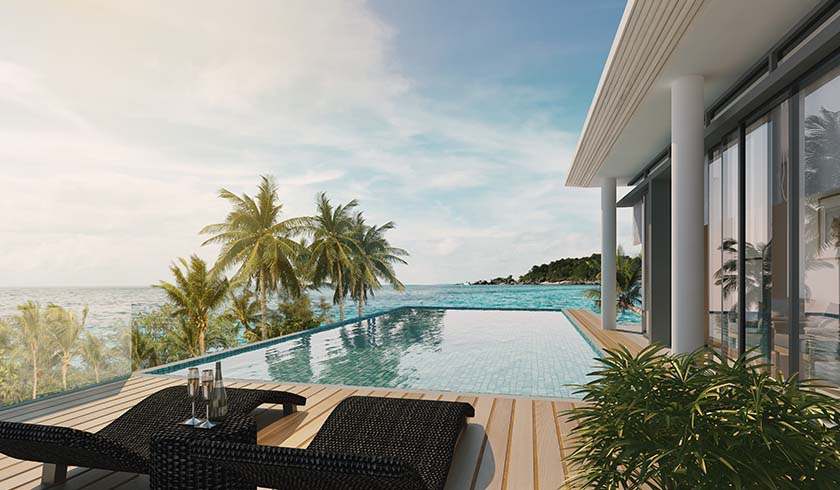How to turn your ‘costly’ lifestyle investment into a money-making asset

Holiday home buyers are being advised to consider five key strategies, touted to turn their “costly lifestyle investment” into a money-making asset.
Mike Mortlock, managing director of MCG Quantity Surveyors, believes that anyone who has impulse bought a holiday home over Christmas must get serious about making it profitable.
“Australians invariably get caught up in the holiday romance of buying a ‘weekender’, and some will act on impulse while on vacation.
“Often, investors reason that by renting to holiday-makers when they aren’t using it, the asset’s maintenance and holding costs will be covered, but that’s rarely the case,” warned Mr Mortlock.
Instead, he advised buyers to follow the path taken by “smart investors”.
“There are a few things that boost your home’s appeal with holiday-makers which not only maximise rental income, but also deliver excellent tax depreciation benefits.
“This means, come the end of the financial year, you’ll have more upside in your tax return, thanks to your holiday home.”
According to Mr Mortlock, these five key strategies include:
Climate control
“Ensuring your holiday home is air-conditioned is essential for attracting holiday-makers,” Mr Mortlock said.
“Vacationers will spend plenty of time relaxing at your short-stay, and they’ll want their comfort levels to be spot on.”
According to Mr Mortlock, guaranteeing a home has split system air-conditioning and insulation not only helps improve the holiday experience for renters, but delivers tax benefits too.
“The deductions available when you install a new split system represent 20 per cent of the cost of the asset within the first full year of claim. So, spending $3,500 on a split system will equate to $700 worth of deductions in year one.
Pet appeal
“Holiday homes that are pet-friendly command a premium, as pet owners look to take their ‘fur-babies’ on holiday, which saves on the cost and stress of kennelling,” Mr Mortlock opined.
But improvements which help create pet-friendly rentals also provide depreciation benefits.
“Think boundary fencing, hardwood floors, pet-proof landscaping. Even items such as an external doghouse can be depreciated.”
Outdoor entertaining
Holidays are built for family barbecues and lounging in a shady spot. As such, Mr Mortlock noted that the addition of a roofed outdoor relaxation and entertainment area will drive visits.
“They are also filled with depreciation opportunities such as ceiling fans, built-in barbecues and benchtops,” he said.
Pools
Even when near a beachside holiday spot, Mr Mortlock believes there’s no denying the appeal of a pool when holidaying.
“If you’ve been fortunate to buy a home with a pool, don’t forget to claim depreciation benefits on the fencing and filtration system.”
WiFi and entertainment
Providing unlimited WiFi has become pretty much mandatory for holiday homes. Access to streaming services, scrolling through websites on local hotspots or checking in on updated weather alerts and surf conditions make web access a must.
“Simple elements such as supplying a television can improve your tax deductions,” said Mr Mortlock.
“For example, televisions have an eight-year effective life, so under the diminishing value method, a $2,000 TV will provide $500 in deductions in the first full year of claim.
“While depreciation rules for computer equipment are currently found within the commercial sections of the tax legislation, it’s likely that computer equipment will become a residential plant and equipment item in time. Either way, routers and range extenders will always attract deductions,” he opined.

